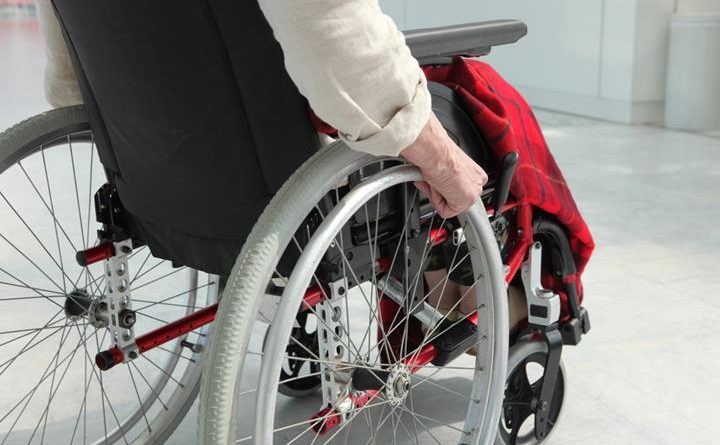Overview of Multiple Sclerosis
Treatment
There is currently no cure for multiple sclerosis (MS). Treatment of MS, therefore, focuses on managing its symptoms, delaying progression of the disease and speeding recovery from attacks. Some people do, however, have very mild symptoms of the disease such that they do not need any treatment.
Treatment for MS Attacks
- Corticosteroids
These include intravenous and oral prescribed for reducing nerve inflammation. Some of their side effects include increased blood pressure, insomnia, fluid retention and mood swings.
- Plasma Exchange (Plasmapheresis)
This is used if you are experiencing new and severe symptoms that have not responded to steroids and involves removing the liquid portion of part of the blood (plasma) and separating it from blood cells. The separated blood cells are then mixed with albumin solution and put back into the body.
Treatments to Modify Progression
Ocrelizumab (Ocrevus) is the only disease-modifying therapy (DMT) for primary-progressive MS approved by the FDA. It works by slowing worsening of disability in people suffering from this form of MS. Several disease-modifying therapies are available for relapsing-remitting MS. MS-associated immune response majorly occurs in the early stages of the disease. To slow the formation of new lesions and lower the relapse rate, aggressive treatment with these medications is recommended as early as possible.
Significant health risks are associated with treatment of MS using disease-modifying therapies. Selecting the right therapy for you is crucial for your well-being and is dependent on many factors such as duration and severity of the disease, effectiveness of MS treatments used in the past, cost, child-bearing status and other health issues.
Treatment Options for Relapsing-remitting MS
- Beta s
These are among the most prescribed medications for the treatment of MS. They reduce the frequency and severity of MS relapse and are injected into the muscle or under the skin.
The side effects of beta s include injection-site reactions and flu-like symptoms. Blood tests are needed to monitor liver enzymes since liver damage is one of the side effects of use. Drug effectiveness may also be affected in people taking s due to the development of neutralizing antibodies.
- Ocrelizumab (Ocrevus)
This is the only FDA-approved DMT used in the treatment of both primary progressive and relapse-remitting forms of MS. Clinical trials of this humanized immunoglobulin antibody medication have shown that it reduces the relapse rate in relapsing disease and slows the worsening of disability in both forms of MS. It is administered as an intravenous infusion by a medical professional.
Some of the side effects of Ocrevus administration include infusion-related reactions such as low blood pressure, reactions at the injection site such as irritation, nausea, fever, among others. Ocrevus is associated with increased risk of some form of cancers, especially breast cancer.
- ()
This medication must be injected under the skin. It helps by blocking your immune system from attacking myelin within the body. One of the major side effects associated with the medication is irritation of the skin at the injection site.
- (Tecfidera)
This oral medication is taken twice daily and reduces relapse. Its side effects include nausea, diarrhea, flushing, and decreased white blood cell count.
- ()
This oral medication is taken once daily and reduces relapse rate. Side effects of the medication include high blood pressure, blurred vision and headache. Your heart rate has to be monitored for six hours after taking the first dose of the medication because your heartbeat may be slowed.
- Teriflunomide ()
This reduces relapse rate and is taken once daily. The medication can lead to liver damage, hair loss and other side effects. It should not be used by women who are not on contraceptives and intend to get pregnant, or their male partners, since it is harmful to developing fetuses.
- Natalizumab (Tysabri)
This medication is considered a first line of treatment for some people suffering from severe MS or a second line treatment in others. It is designed to block the movement of potentially damaging immune cells from the blood stream to the spinal cord and brain. It, however, increases the risk of progressive multifocal leukoencephalopathy (a viral infection in the brain) in some people.
- Alemtuzumab (Lemtrada)
This medication works by reducing MS relapses by depleting white blood cells and targeting a protein on the surface of immune cells. This can limit potential nerve damage from white blood cells and increases the risk of autoimmune disorders and infections.
The drug infusion is taken for five consecutive days followed by a three-day infusion of the drug a year later. As such, infusion reactions are common with this medication. The drug is only available from registered providers and those treated with the drug must be registered in a social safety monitoring program.
This is an immunosuppressant harmful to the heart that is also associated with the development of blood cancers. Its use in MS treatment is, therefore, very limited as it is only used to treat severe, advanced MS.
Treatments for MS Signs and symptoms
- Physical Therapy
Strengthening and stretching exercises with the assistance of a physical or occupational therapist can help you manage the effects of the disease. He/she can also teach you how to use devices that assist you in performing daily tasks with more ease.
Leg weakness and other gait issues associated with MS can also be managed with physical therapy and using a mobility aid whenever necessary.
- Muscle Relaxants
Painful and uncontrollable muscle spasms or stiffness, particularly in the legs, can be experienced when one is suffering from MS. Muscle relaxants like tizanidine (Zanaflex) and baclofen (Lioresal) may help.
- Medications to Reduce Fatigue
- Other Medications
Medications for pain, depression, sexual dysfunction, and bowel and bladder movement associated with MS may also be prescribed.
Alternative Medicine
Many people with MS use a myriad of alternative or complementary treatments or both to manage symptoms such as muscle pain and fatigue. To boost mental and physical well-being, many engage in activities such as exercise, yoga, meditation, acupuncture, relaxation techniques and eating healthier diets. There are, however, few studies that back up the use of these activities in managing the symptoms of MS.
The use of oral cannabis extract for muscle pain and spasticity is recommended by guidelines from the American Academy of Neurology. Cannabis in any other form has, however, not been recommended for other MS symptoms due to lack of evidence. Additionally, the guidelines do not recommend the use of magnetic therapy, bee venom or herbal supplements such as Ginkgo biloba for the treatment and management of MS symptoms.
Featured Image: DepositPhotos/photography33




